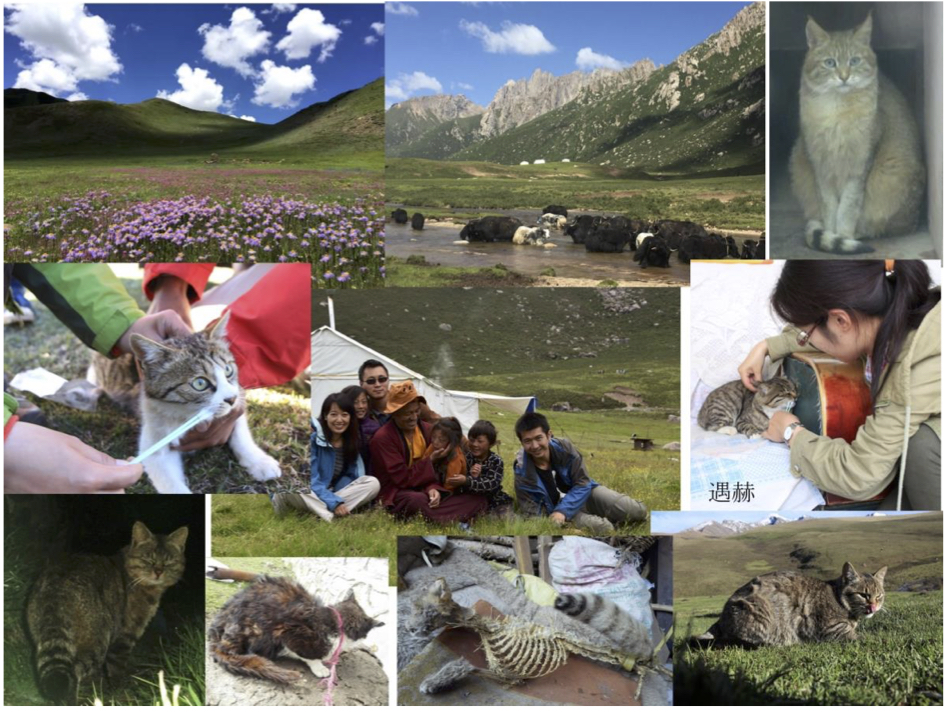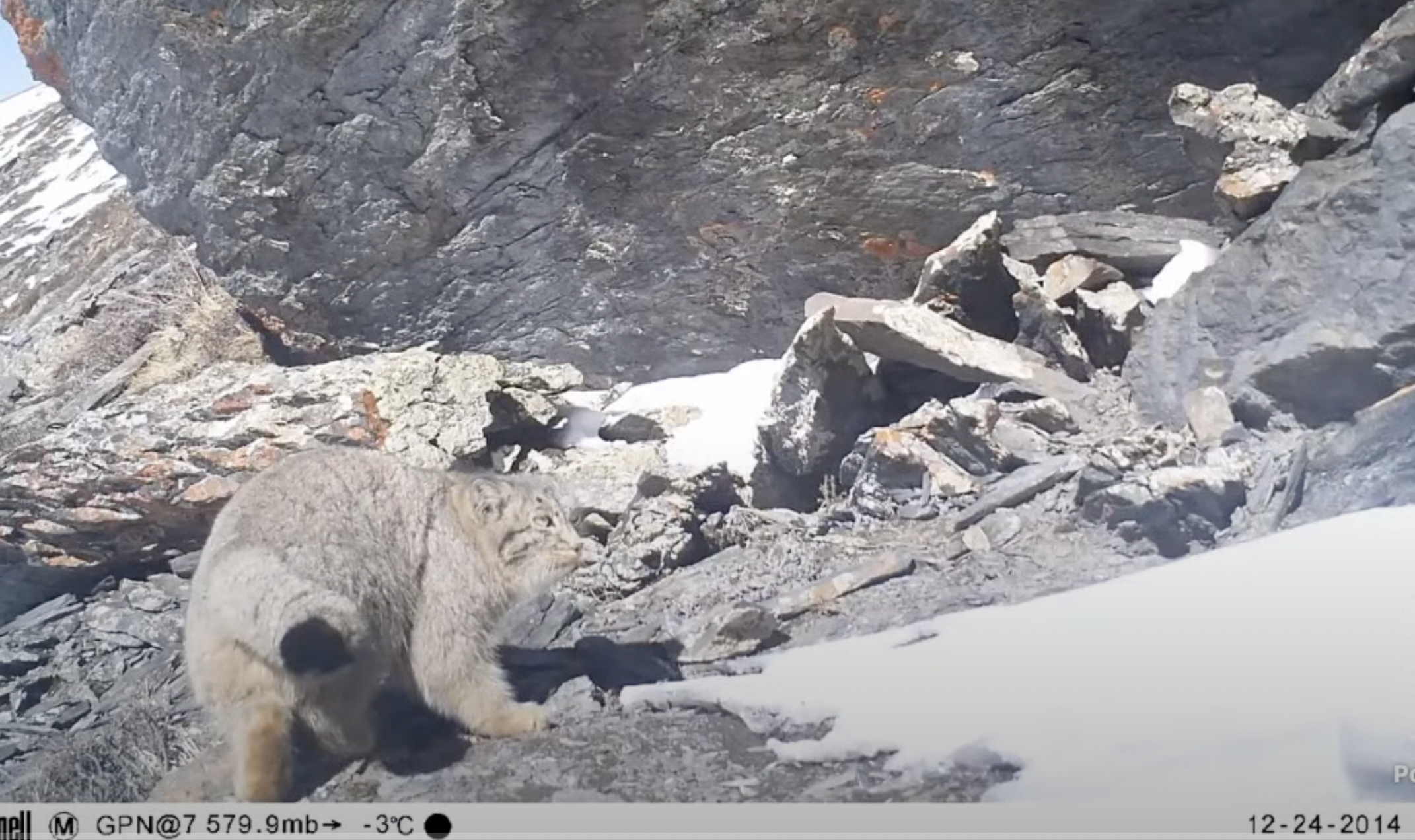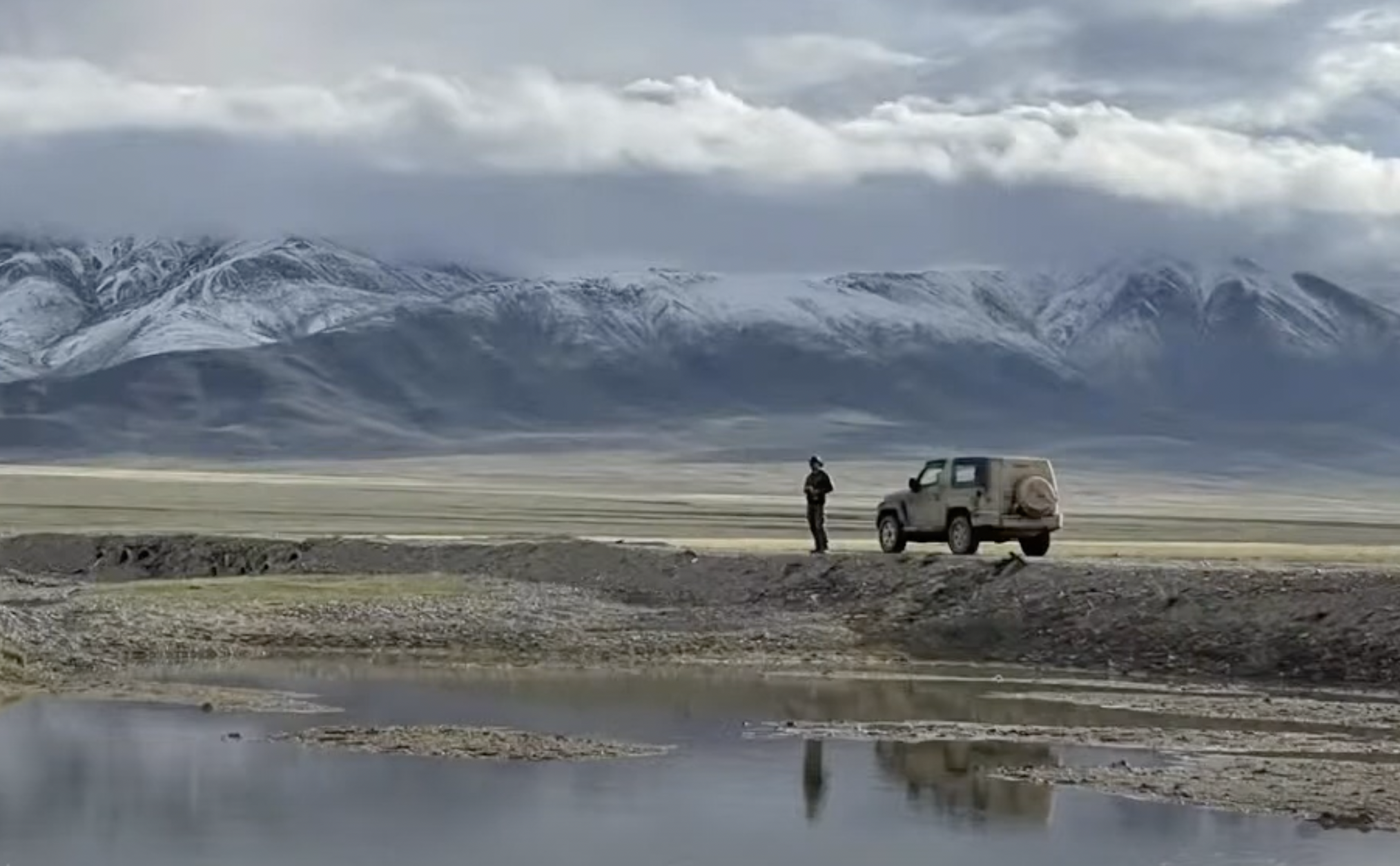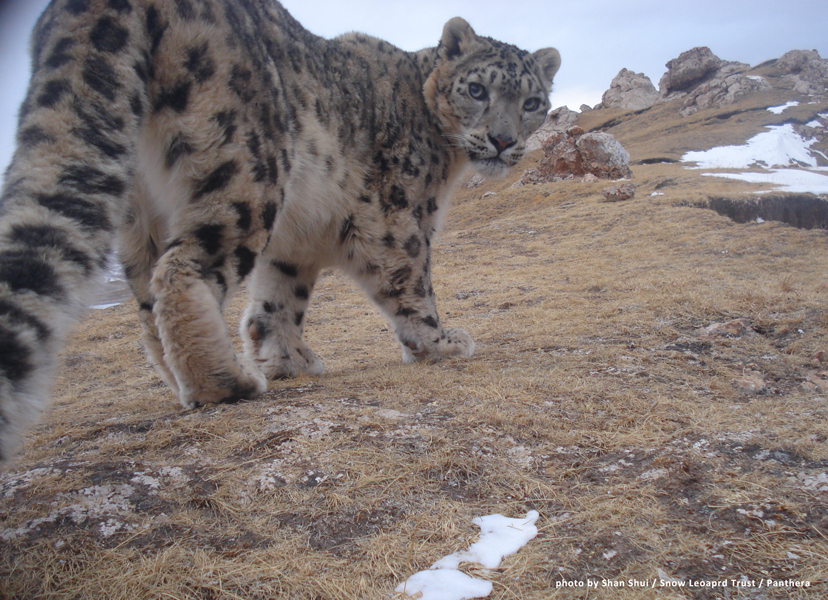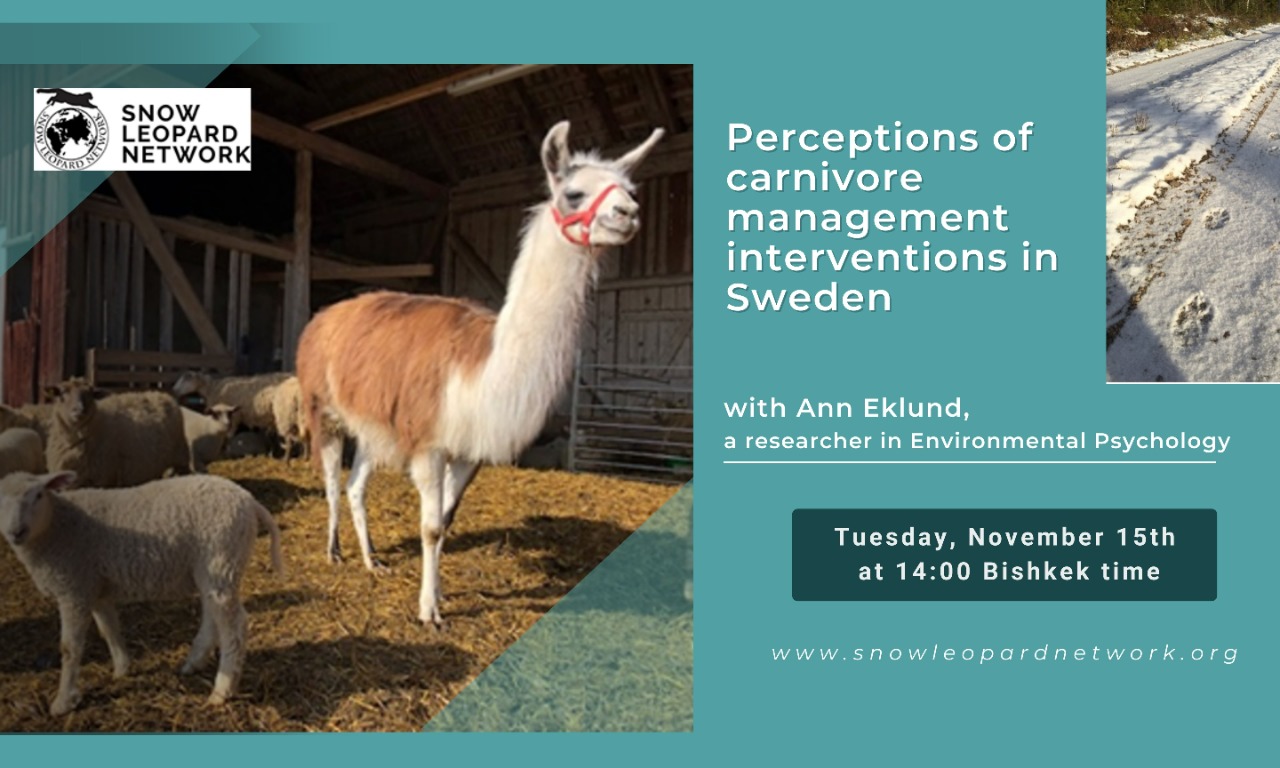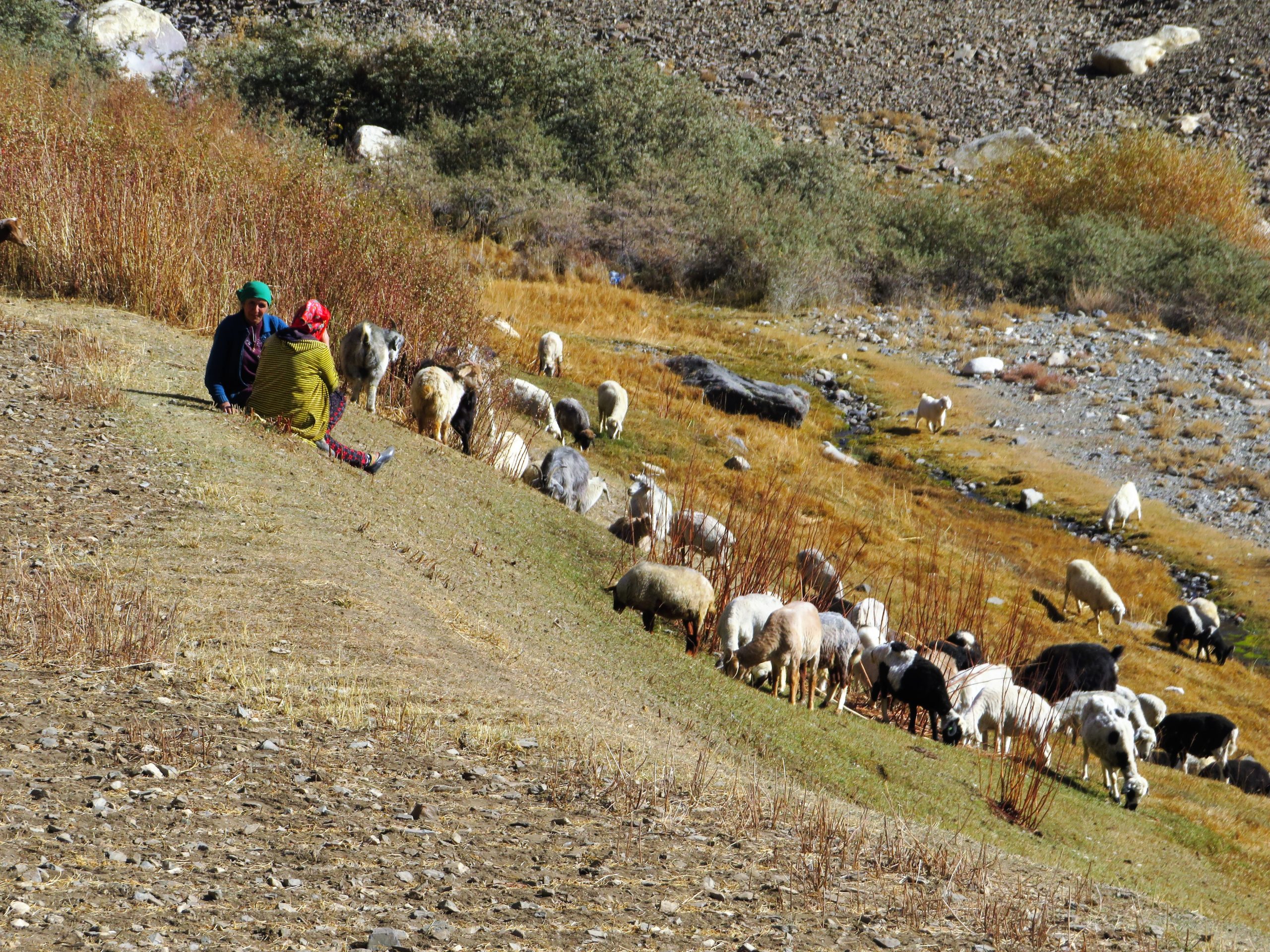Mountains cover more than 90% of Tajikistan. The country’s mountain regions are home to the snow leopard, Marco Polo sheep, Tajik markhor, urial sheep and Asiatic ibex. Tajikistan is developing a climate-smart National Action Plan for the conservation of the snow leopard (Panthera uncia) and its ecosystems in Tajikistan for 2023-2025 supported by UNEPs Vanishing Treasures programme in Tajikistan. Join Ismoil Kholmatov from the Association of Nature Conservation Organizations of Tajikistan (ANCOT) who will share updates of this ongoing effort.
Snow leopards & Nepal
Nepal has a long history in snow leopard conservation. Rinzin Phunjok Lama from the Third Pole Conservancy will share updates of the teams ongoing snow leopard population survey in Humla, west Nepal. He will share how community conservation provides the foundation for their monitoring efforts. Rinzin and his colleagues are actively working in partnership with local stakeholders to tackle threats to snow leopards including direct killings, forest fires, illegal logging through a number of livelihood programs (including gathering honey, making traditional clothes, and running ecotourism businesses). Their work includes large scale monitoring of snow leopards and other wildlife. Join us as Rinzin shares the opportunities and challenges of achieving this multi-pronged approach.
Snow leopards & China
Qilianshan National Park, extends along the magnificent Qilian Mountains in north-eastern corner of the Tibetan Plateau. The mountains of 52,000 sq.km provide home and future refuges for snow leopard and many other wildlife. When the national park was established in 2016, an ambitious plan was announced to assess snow leopard populations across the entire mountain range. Since 2014, Dr. Yanlin Liu has been working with different teams on the snow leopard assessment in Qilian Mountains. Yanlin is currently the Science Director of the Chinese Felid Conservation Alliance and previously served as director of the snow leopard project for the ShanShui Conservation Center and a Post-Doc in the Chinese Academy of Forest. During this session he will share some of the opportunities and challenges his team is facing. He would love to hear form other SLN members and discuss large scale monitoring strategies.
Snow leopards & Kyrgyzstan
In 2021, Panthera kick-started a project with a focus in building conservation capacity and partnerships with communities in Osh, Kyrgyzstan. Since June 2021, the project was co-led by two female conservationists, Sabin Snow Leopard grantee Fatima Mannapbekova and CEPF project lead Altynai Adabaeva. Together with the Ilbirs Foundation, they’ve made introductory visits to communities in the Osh Oblast of Kyrgyzstan to establish relationships with local stakeholders and communities. Later, they led a team of surveyors to conduct the preliminary survey work via household interviews. Over 23 days, 639 interviews were conducted in 37 villages. During this SLN session, Altynai and Fatima will share the results of their work, challenges faced, and lessons learned while working in a rarely studied snow leopard habitat.
SLN Webinar – Perceptions of carnivore management interventions in Sweden and wildlife conflicts from the perspective of the individual.
Large carnivores are known to evoke strong emotions. These can influence consensus or social interactions between people promoting wildlife conservation and people who suffer from its negative consequences. Conservation interventions that aim to prevent or mitigate carnivore attacks on domestic animals are intended to promote coexistence between people and carnivores. These however risk failing if they do not also address fear and social conflicts and emotions/perspectives of intervention end users.
SLN is pleased to invite Ann Eklund, a researcher in Environmental Psychology, to lead this webinar on Tuesday, 15th November, 2022, at 14:00 Bishkek time. Anne will share examples of conservation interventions in Sweden, present how these interventions may be perceived by the intended end users, and discusses the potential that interventions may or may not have to promote co-existence. Orjan Johansson, SLN’s Steering Committee member will facilitate the discussion around this exchange of learnings. We look forward to this session which goes broader than the snow leopard and promotes exchange across continents, as requested by many members.
About the Talk
Large carnivores often occur in the literature on so-called human-wildlife conflicts (HWC). In this talk HWC is understood as impacts and social conflicts, and HWC scenarios are further disentangled from a psychological perspective trying to understand the described situations from an individual’s point of view. Wildlife conflicts are often related to wildlife damages, for instance as a result of carnivore attacks on domestic animals. There are various interventions available intended to reduce the risk of carnivore attacks on domestic animals, and potentially the risk of social conflicts around carnivore conservation. Drawing on a study of animal owners in Sweden, the talk also presents how these interventions may be perceived by the intended end users, and discusses the potential that interventions may or may not have to mitigate carnivore related conflicts in the future.
About our Guest 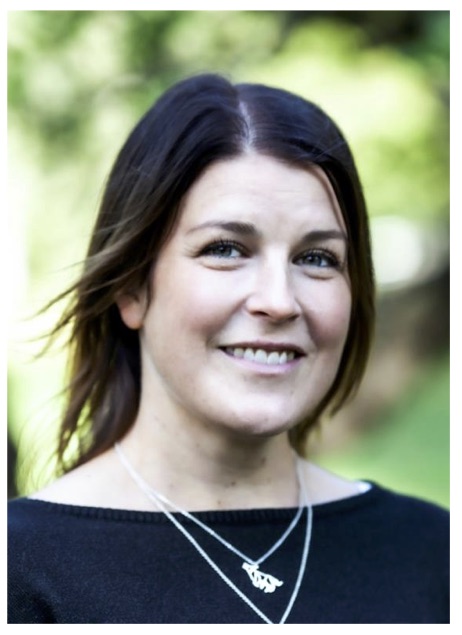
Ann Eklund is a researcher in Environmental Psychology at Lund University, Sweden. She has a PhD in Biology (Conservation Biology) from the Swedish University of Agricultural Sciences, a MSc in Applied Ecology from Hedmark University College in Norway, and a BSc (hons) in Conservation Biology and Animal Behaviour from University of Lincoln in the UK. Her current research is interdisciplinary and focuses particularly human interactions with wildlife and so called “wildlife conflicts”.
Date/Time
Tuesday, 15th November, 2022, at 14:00 pm Bishkek time
Location
ZOOM, to join this talk, REGISTER HERE
Please note
- If you have never used Zoom before, we recommend that you try the link 10 minutes before the start of the lecture.
- Please feel free to write questions in the comment area and there will be time for questions/discussion at the end of the talk.
- Please note that the session will be recorded and later featured on the SLN website. If you have concerns about this please let us know before the session.
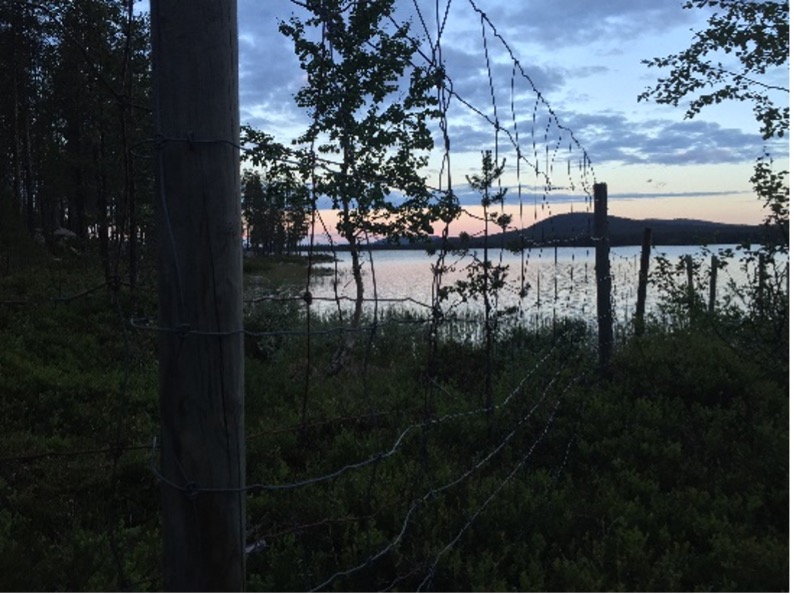
SLN Webinar – Climate risk for communities’ livelihoods & its implications for human-wildlife conflict

Climate change is perhaps the overarching threat to snow leopards and their habitat. Knowledge about its impact on the species, its habitat and the people who share that habitat is growing but still remains incomplete and fragmentary. As our understanding of climate change impacts changes over time the Snow Leopard Network hopes to bring together experts and resource persons together to open up perspectives and share ideas for the way forward. Join us on this 3rd webinar with a focus on climate change as we continue to share the latest thinking and evidence that is emerging on this key issue. We are particularly pleased to welcome Dr. Eirini Skrimizea, a postdoctoral researcher who focusses on the governance of socio-ecological development and the social aspects of climate change.
About the talk
How does climate change affect snow leopards and may intensify human-wildlife conflict?
Why is it relevant to conduct climate risk assessments focusing on communities’ livelihoods and their interaction with wildlife, and how to do so?
What is the added value of such climate risk assessments to snow leopard conservation programmes and goals?
During this seminar, Dr. Eirini Skrimizea will address these questions drawing insights from the climate risk assessment the Eurac Research team conducted in Kyrgyzstan for UNEP’s “Vanishing Treasures Programme – Snow Leopard in Central Asia’ component”.
The Vanishing Treasures Programme aims at protecting mountain flagship species generating maximum synergy between climate change adaptation and biodiversity conservation; the climate risk assessment has been a crucial analytical step to understand and structure the climate risk so as to ensure climate-smart and climate-proof conservation actions. The talk will discuss the role and step-by-step methodology of this climate risk assessment with the goal to support the transferability of the approach to other communities and contexts. Dr. Ranjini Murali, who has been supporting the social, policy and on-ground implementation of the Vanishing Treasures Programme in Kyrgyzstan, will facilitate the webinar and the presentation will be followed by a Q&A session with Ulukbek Visid uulu as discussant.
About Our Guest – Eirini Skrimizea
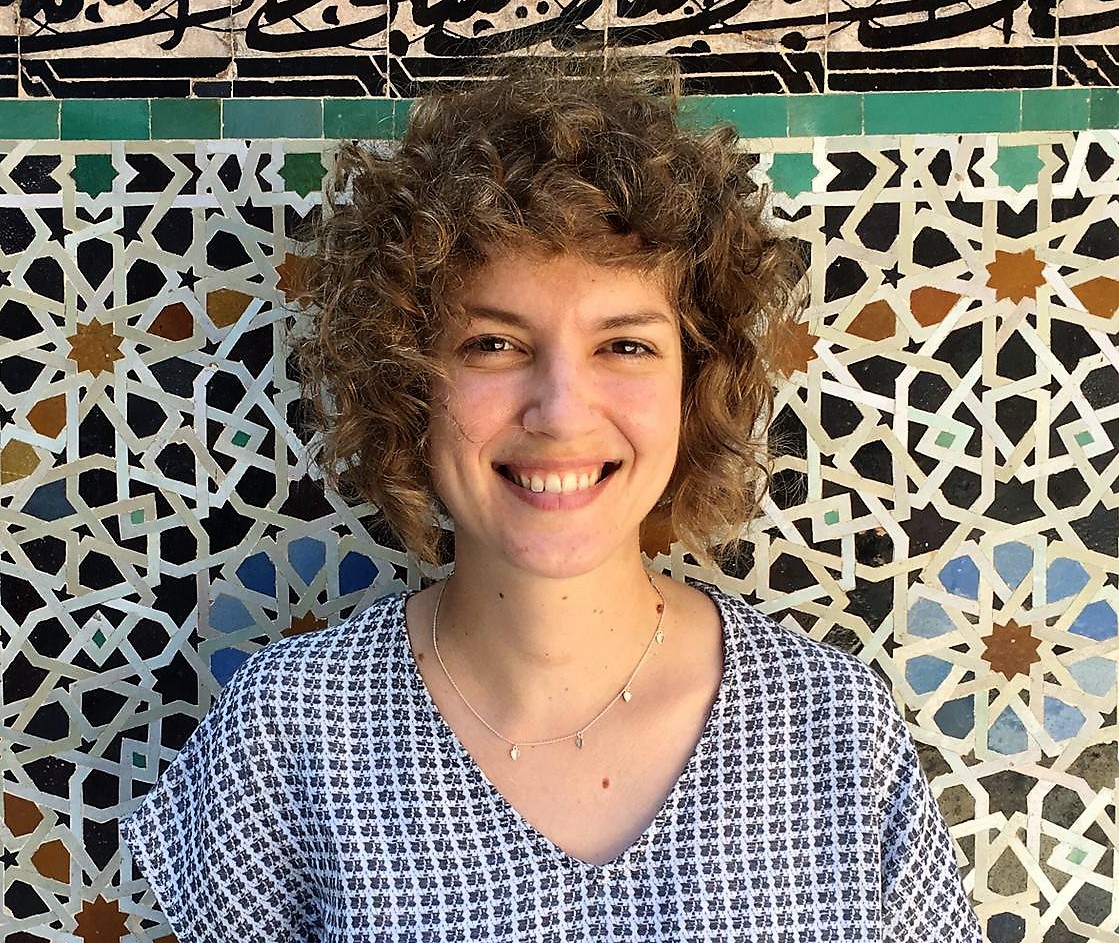
Dr. Eirini Skrimizea is a post-doctoral researcher and graduate teaching associate at the Department of Earth and Environmental Sciences at KU Leuven in Belgium. She is an interdisciplinary scholar with a background in surveying engineering, spatial planning and sustainability studies. She holds a joint PhD degree in Urban Studies from Gran Sasso Science Institute and Scuola Superiore Sant’Anna, and has worked at INRA, Eurac Research and DG ECHO of the European Commission. Her research focuses on the accelerated intensification of human-environment interactions covering themes such as the development-climate change nexus, community resilience, sustainable agriculture and food systems, with case-study research in Africa, Asia and Europe.
About Our Discussant – Ulukbek Visid uulu
Ulukbek Visid uulu, Program coordinator at Snow Leopard Trust, has a proven track record of 7 years in public policy and public administration at all levels, from local authorities to the government. Strongly skilled in legislation analysis, policy advocacy, monitoring and evaluation of governmental action plans/programs, partnership building and interaction with public/private organizations, CSOs engagement in government processes. Has extensive knowledge on handling cross-functional tasks related to policy development and its advocacy within public service and project management at international organizations.
He spent four years with the GSLEP building partnerships with local communities in rural areas to create an alternative sustainable source of income.
About Our Facilitator – Ranjini Murali
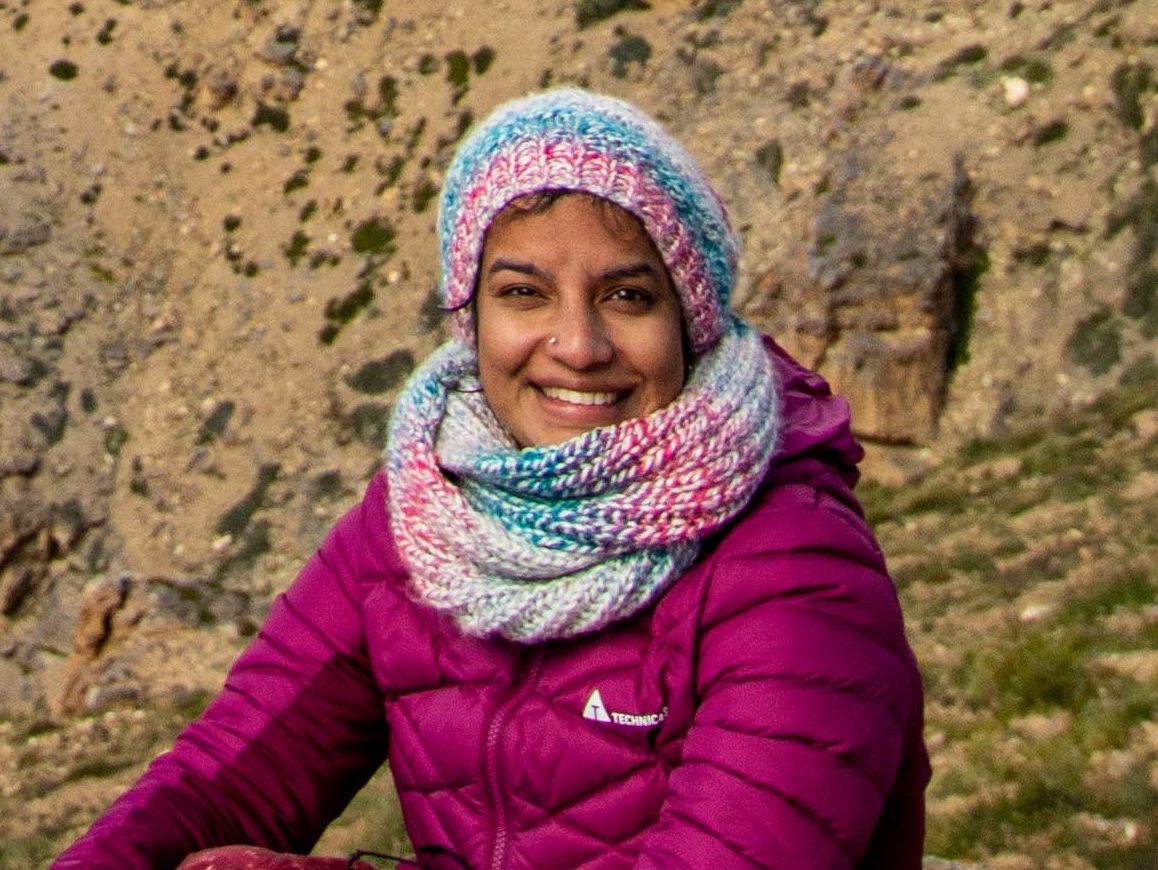 Dr. Ranjini Murali had over ten years experience working in snow leopard landscapes. She is currently a postdoctoral researcher at the Biography Lab in Humboldt Universität zu Berlin. She works on understanding the impacts sudden of institutional changes on large carnivore populations. She’s also a conservation scientist with the Snow Leopard Trust and affiliated with the Global Snow Leopard Ecosystem Programme (GSLEP).
Dr. Ranjini Murali had over ten years experience working in snow leopard landscapes. She is currently a postdoctoral researcher at the Biography Lab in Humboldt Universität zu Berlin. She works on understanding the impacts sudden of institutional changes on large carnivore populations. She’s also a conservation scientist with the Snow Leopard Trust and affiliated with the Global Snow Leopard Ecosystem Programme (GSLEP).
Date/Time
Monday, October 10th, 2022, at 15:30 pm Bishkek time
Location
ZOOM, to join this talk, REGISTER HERE
Please note
- If you have never used Zoom before, we recommend that you try the link 10 minutes before the start of the lecture.
- Please feel free to write questions in the comment area and there will be time for questions/discussion at the end of the talk.
- Please note that the session will be recorded and later featured on the SLN website. If you have concerns about this please let us know before the session.
Did you miss our other Climate Change focussed Webinars on SLN?
Do checkout our previous webinars or trainings with a focus on Climate Change:
Celebrating 20 years of the Snow Leopard Network- Webinar Recording now available
It all started back in 2002 – twenty years ago. The Snow Leopard Survival Summit brought together over 60 experts from 17 countries to develop what was to become the Snow Leopard Survival Strategy. From that meeting the Snow Leopard Network was founded with a Steering Committee of eight elected members. Many of the 2002 Summit participants, are still working in snow leopard conservation today. Now, with over 500 members and 28 organisations, the Snow Leopard Network provides a platform for an increasing number of practitioners across Asia and the world around snow leopard conservation.
Join us on September 13th, 2022, where we will take the opportunity to look back and highlight some key moments and achievements of the Network. We are bringing together 5 distinguished Steering Committee members from different periods of time to share experiences and reflections through photographic images and their accounts. We will also use this opportunity to look to the future of the Network.
Celebrating 20 years of the Snow Leopard Network
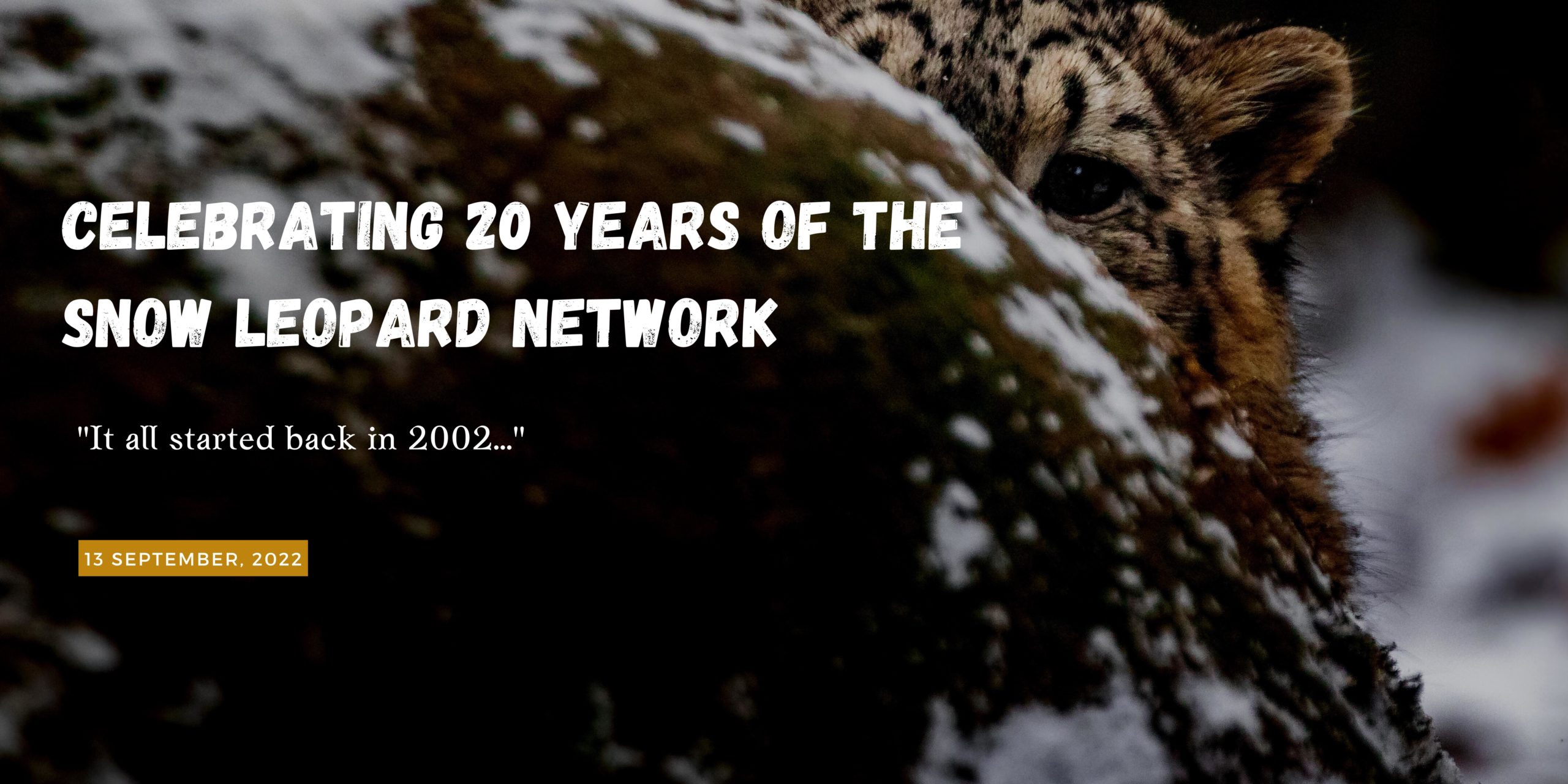
It all started back in 2002 – twenty years ago. The Snow Leopard Survival Summit brought together over 60 experts from 17 countries to develop what was to become the Snow Leopard Survival Strategy. From that meeting the Snow Leopard Network was founded with a Steering Committee of eight elected members. Many of the 2002 Summit participants, are still working in snow leopard conservation today. Now, with over 500 members and 28 organisations, the Snow Leopard Network provides a platform for an increasing number of practitioners across Asia and the world around snow leopard conservation.
Join us on September 13th, 2022, where we will take the opportunity to look back and highlight some key moments and achievements of the Network. We are bringing together 5 distinguished Steering Committee members from different periods of time to share experiences and reflections through photographic images and their accounts. We will also use this opportunity to look to the future of the Network.
The format of the Celebratory Session will include a rolling photo-montage of SLN’s timeline by our 5 previous Steering Committee members. Each will span a different moment and perspective on the evolution of snow leopard conservation as a science and discipline. Tom McCarthy will open the timeline with an account of why SLN came into being. Yash Veer Bhatnagar, Muhammad Ali Nawaz, Sibylle Noras will take the story up to 2019 noting changes in conservation thinking over this time. Lingyun Xiao will take us to the present day and take stock. This travel in time will be followed by a round table discussion exploring what have been the critical factors at play in snow leopard conservation, how these have changed, and may change in the future.
We also warmly welcome other SLN members who have taken part over time – either through the Grants Program (past recipients), as SC chairs and members, or in other capacities – who would like to join the discussion and share their insights.
Join us in celebrating the history of snow leopard conservation over the last 20 years!
Date/Time
Tuesday, September 13th, 2022, at 11:00am Bishkek time
Location
ZOOM, to join this talk, REGISTER HERE
Please note
- If you have never used Zoom before, we recommend that you try the link 10 minutes before the start of the lecture.
- Please feel free to write questions in the comment area and there will be time for questions/discussion at the end of the talk.
- Please note that the session will be recorded and later featured on the SLN website. If you have concerns about this please let us know before the session.
SLN Webinar – Towards improved parasite transmission understanding: A case study from the Indian Trans-Himalaya
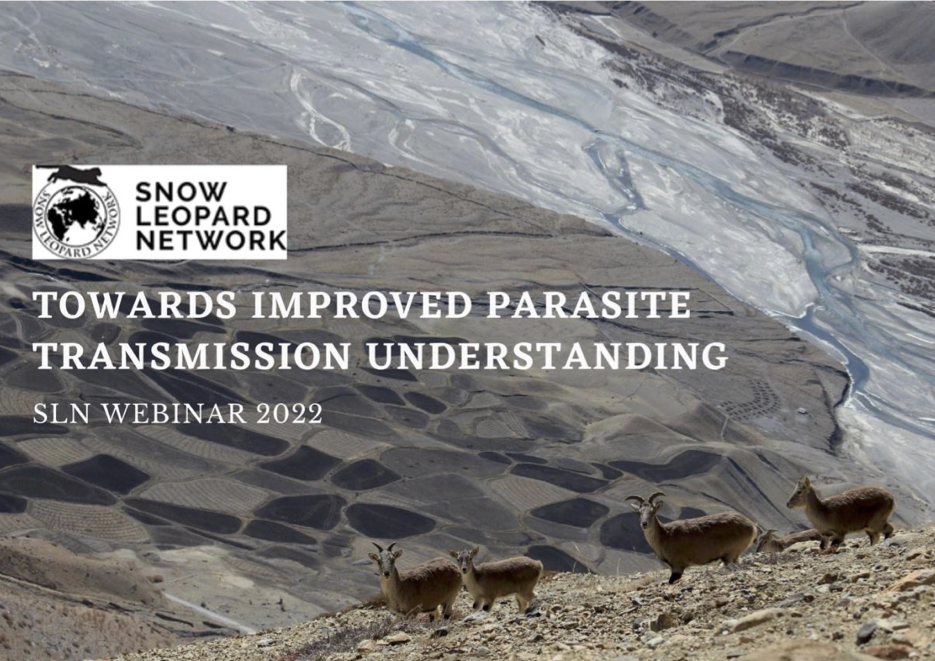
The Snow Leopard Network is pleased to announce our next webinar with a focus on investigating disease transmission in high altitude settings. We will travel to the Trans-Himalayas of India with a team of researchers who are looking at snow leopard conservation from a wider perspective – and considering the interactions between parasites, livestock and wild ungulates.
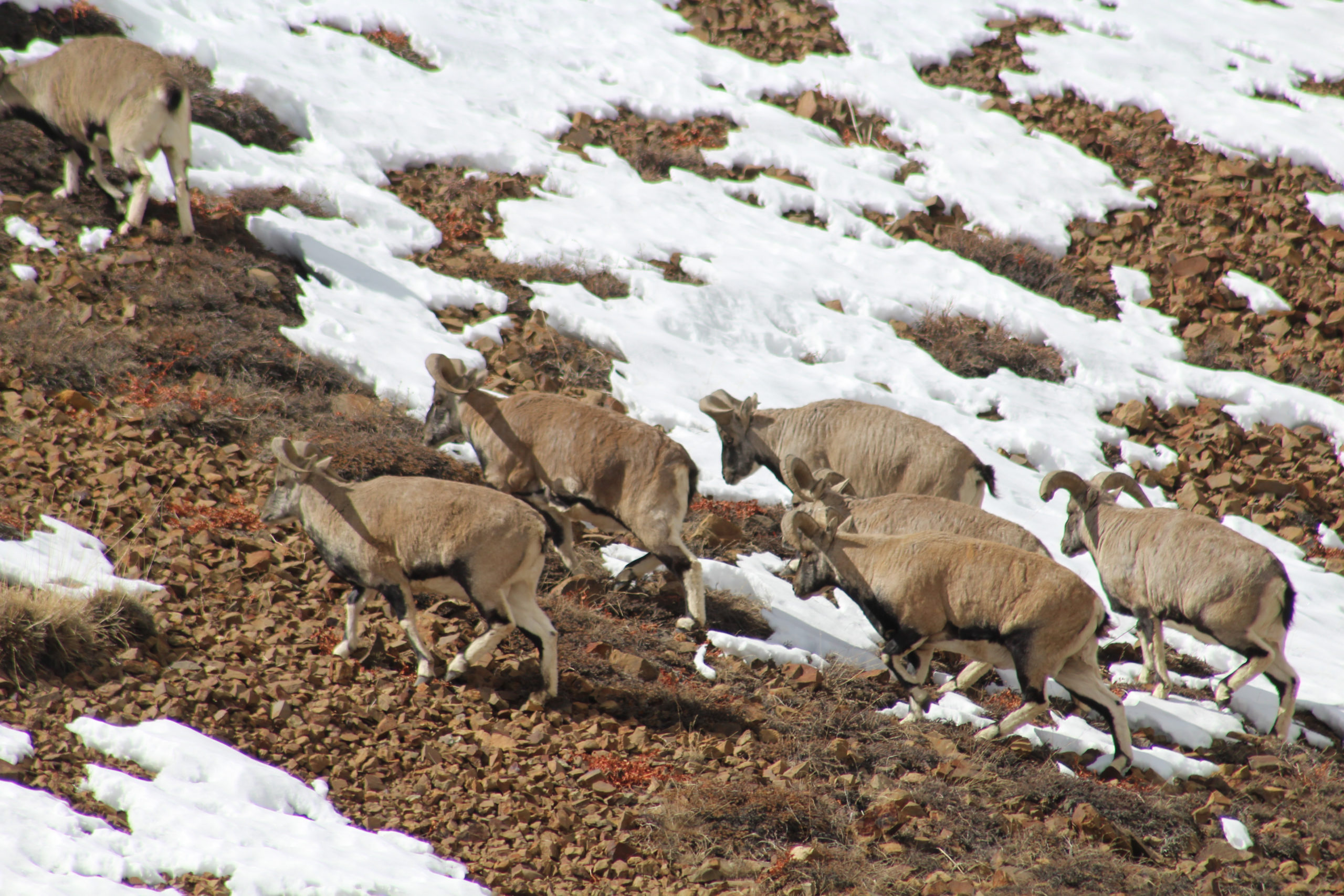
We are pleased to welcome Dr. Munib Khanyari and Dr. Manvi Sharma. Our guests will give a particular focus on how multi-use landscapes, home to both wildlife and livestock-dependent herders, require context specific approaches to addressing disease transmission risks. Do join us!
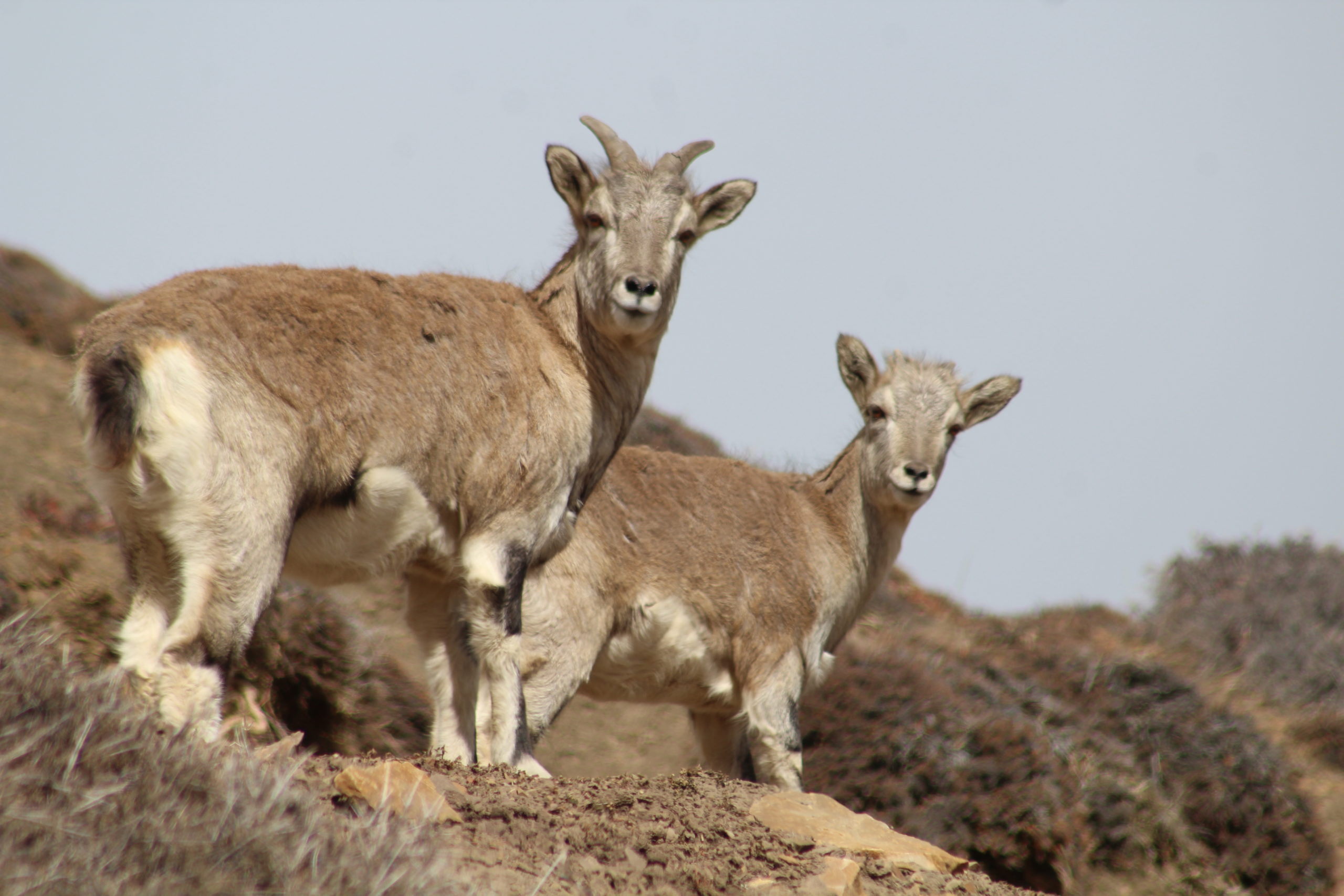
About the Talk
During this talk we will travel to the mountains of Spiti, India. Munib and team explored gastro-intestinal nematode (GINs) infections between wild Bharal and domestic livestock. This was done through a socio-ecological lens, integrating parasite transmission modelling with field surveys and local knowledge. The team then evaluated the likely effectiveness of potential conservation and policy interventions. The main aim of the study was to provide a transferable multi-pronged approach to investigating disease transmission, in order to support herders’ livelihoods and conserve wild ungulates.
About Our Guest – Munib Khanyari
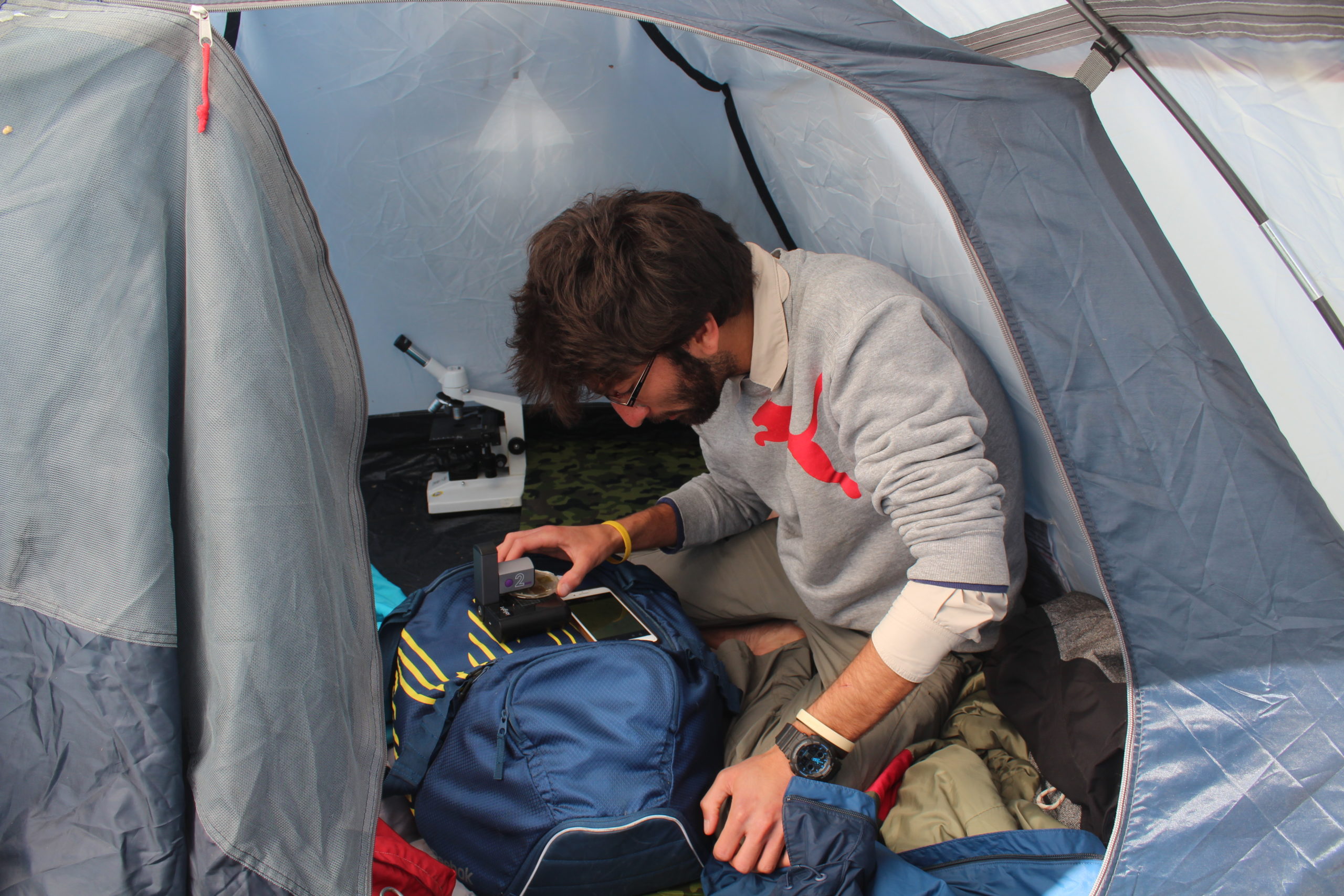
Munib recently completed his PhD that looked at investigating the impact of environmental and social factors on gastro-intestinal nematode (GINs) transmission dynamics between interacting domestic and wild ungulates, exhibiting spatio-temporal dynamics, in temperate Asian rangelands. Munib now works with the Nature Conservation Foundation as a Program Manager. He works primarily across the Trans-Himalayan region of India, aiming to build positive human-nature relationships.
About our Facilitator – Manvi Sharma

Manvi is postdoctoral fellow at the High Altitudes program at Nature Conservation Foundation. She is interested in understanding the diversity in predator and prey traits and how biological communities interact and are assembled. She uses approaches from behavioural, population, and community ecology to answer questions about how animals can show a diverse set of responses to the changing problems around them. She has been interested in carnivore ecology and she is interested in using interdisciplinary approaches to understand and manage carnivore and human relationships in the Indian Himalaya.
Date/Time: Tuesday, 30th August, 2022 – 2:00PM Bishkek time.
Location: ZOOM, to join this talk, REGISTER HERE
Please note:
- If you have never used Zoom before, we recommend that you try the link 10 minutes before the start of the lecture.
- Please feel free to write questions in the comment area and there will be time for questions/discussion at the end of the talk.
SLN Webinar – Tracing the Blue Eyes: The Genetic Ancestry of the Chinese Mountain Cat
The Genetic Ancestry of the Chinese Mountain Cat
The Snow Leopard Network welcomes you to our next webinar on the Chinese Mountain Cat with Dr. Shu-Jin Luo, from Peking University, China.
The Snow Leopard Network welcomes you to our next webinar on the Chinese Mountain Cat with Dr. Shu-Jin Luo, from Peking University, China. This is a special opportunity for the snow leopard community to learn about this smaller, also elusive, wild cat species. Do ‘zoom in’ to listen to our guest speakers and join the discussion.
About the Talk
Within China’s Qinghai-Tibet Plateau, called the rooftop of the world because it is the highest plateau on the planet, dwells the Chinese Mountain Cat or Chinese Steppe Cat (Felis silvestris bieti). This unique wild cat shares its species designation with the North African Wildcat (F. s. lybica), South African Wildcat (F. s. cafra), European Wildcat (F. s. silvestris), and the Asiatic Wildcat (F. s. ornata). We conducted surveys, collected cheek swabs, blood samples, and fecal samples for genetic analysis from cats in zoos, in the field, and in the homes of families in the Qinghai-Tibet Plateau area for research. Our research provided the world’s first genetic evidence of historical and contemporary introgression events between domestic cats (F. s. catus) and F. s. bieti. The results provide genetic evidence that a substantial percentage of the genomes of some Chinese domestic cats are as much as ten percent F. s. bieti. Genome-wide analyses classified the Chinese mountain cat as a wildcat conspecific F. s. bieti, which was not involved in cat domestication of China, thus supporting a single domestication origin arising from the African wildcat (F. s. lybica). A complex hybridization scenario including ancient introgression from the Asiatic wildcat (F. s. ornata) to F. s. bieti, and contemporary gene flow between F. s. bieti and sympatric domestic cats that are likely recent Plateau arrivals, raises the prospect of disrupted wildcat genetic integrity, an issue with profound conservation implications.
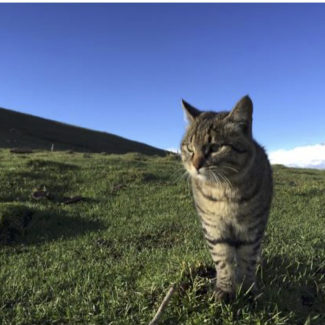
A domestic cat in Qinghai (left) carries in its genome some genetic admixture component from the Chinese mountain cat (right) that is endemic on the Qinghai-Tibet Plateau and is now considered a wildcat subspecies (Felis silvestris bieti) according to the recent study (Yu et al. 2021).
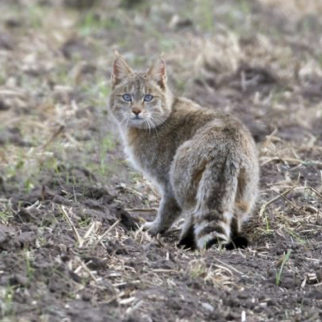
Our Guest

Dr. Shu-Jin Luo is a Principal Investigator at the School of Life Sciences, Peking University, China. A conservation and evolutionary geneticist with a Ph.D. from the University of Minnesota and a postdoc at the National Cancer Institute in Maryland, Dr. Luo is leading an active research team working on the genetics of wild and domestic cats and is the lead author discovering the new Malayan tiger subspecies Panthera tigris jacksoni, finding the genetic causes of the white tiger, and elucidating the evolutionary histories of various endangered felids including the tiger, leopard cat, and the Chinese mountain cat. Dr. Luo is a member of the IUCN Cat Specialist Group since 2005 and a council member for the American Genetic Association (AGA) since 2020.
Dr. Shu Jin Luo will be joined by a facilitator and key discussant exchanging ideas and approaches for safeguarding high altitude ecosystems.
Date/Time
Tuesday, June 28th, 2022, at 04:00 PM Beijing, Shanghai
Location
ZOOM, to join this talk, REGISTER HERE
Please note
- If you have never used Zoom before, we recommend that you try the link 10 minutes before the start of the lecture.
- Please feel free to write questions in the comment area and there will be time for questions/discussion at the end of the talk.
- Please note that the session will be recorded and later featured on the SLN website. If you have concerns about this please let us know before the session.
